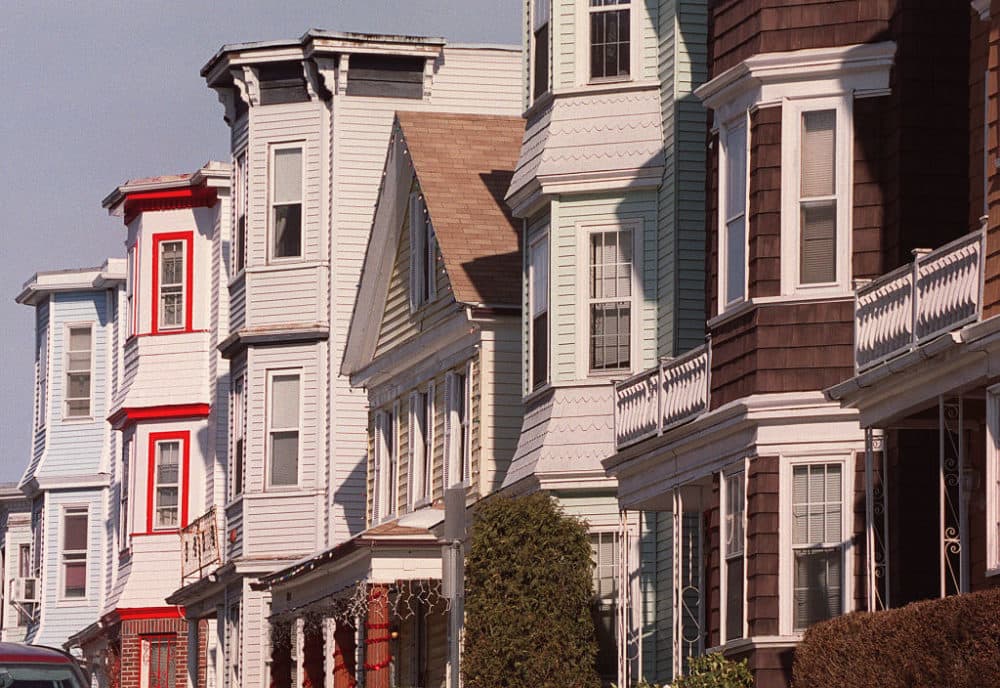Advertisement
Commentary
It costs a fortune to live in Greater Boston. A new zoning law could help

Home prices in Greater Boston continue to hit all-time highs. The average sale price of a condominium is now $716,000 and single-family homes are going for over $840,000. Massachusetts is the third most expensive state for housing. But it hasn’t always been this way. And, the good news is that we can do something about it.
In fact, the Massachusetts Legislature has already gotten started. Last session, the Legislature passed, and Gov. Charlie Baker signed into law, the state’s most comprehensive zoning reform in a generation, making it easier for communities to embrace smart growth solutions to help alleviate our statewide housing shortage.
The law truly meets the moment, by mandating that 175 communities serviced by the MBTA to have at least one zone where multi-family housing is allowed by right. Rep. Andy Vargas and Rep. Kevin Honan, alongside Sen. Brendan Crighton championed this provision knowing that housing is vital for the health and future of the commonwealth.
We advocated for this bill because we’ve seen what high home prices and rents mean for our constituents and neighbors. We’ve seen longtime residents pushed out of our communities because they can’t afford to live here anymore. We’ve seen our local coffee shops, concert venues and hardware stores close or move out of our cities altogether, tearing the fabric of our neighborhoods. We see workers losing hours of their day commuting to jobs they’ve had to move farther from to afford a place to live. As inflation and increased supply costs continue to restrict construction, rent costs are soaring further and homeownership in Massachusetts and elsewhere is becoming a luxury rather than the norm.
Zoning serves as the primary, persistent barrier with decisions made locally that are often prescribed by a small group of individuals who do not always represent the needs of the larger community.
The zoning reforms included in the new legislation will help us turn the tide. For 30 years, many communities in the state have said no to building new housing, resulting in escalating rents and home prices. Zoning serves as the primary, persistent barrier with decisions made locally that are often prescribed by a small group of individuals who do not always represent the needs of the larger community. Affordable multi-family homes often fail to make it out of the planning stage, resulting in a dire lack of the homes we need the most. Massachusetts needs at least 200,000 more homes by 2030 to keep pace with demand and the MBTA multi-family zoning mandate will help us get there.
This new law does not mandate the building of new homes. It is a zoning mandate. It changes how local decisions are made to make it easier to produce homes and ensures each public transit municipality is a part of the housing solution. By coming into compliance with the law, communities have flexibility in integrating multi-family homes to be affordable, market rate or a mix of both.
This zoning mandate still requires housing proposals and developers to demonstrate to local planning officials that the specifications of their project comply with all applicable state and local regulations, including water, sewage and environmental regulation. The draft guidelines also allow communities to include the existing amount of homes allowed by-right in the new zoning district to count towards their requirement.
The Executive Office of Housing and Economic Development is working in earnest with municipalities to ensure they have the needed resources to comply with the law and put new policies in place that support the health and vitality of our communities and the state.
More affordable, accessible homes for people means schools have teachers, college grads can come home, and young families can build a future.
We must take bold action to address our housing shortage and bring meaningful relief to residents. Housing and zoning policies can be dizzying. It is easy to lose track of how these policies affect our lives. Here's a reminder: More affordable, accessible homes for people means schools have teachers, college grads can come home, and young families can build a future. It means more multi-family housing on vibrant Main Streets and near transit hubs, where its impact is greatest. A diverse mix of housing types across our state is critical to our long-term success by protecting our environment, improving our overall health, improving the quality of our children's education, strengthening our economy and building wealth for everyone. Creating more homes is essential to a thriving Massachusetts.
Richard Rothstein summed it up best in his book, “The Color of Law”:
Today’s residential segregation in the North, South, Midwest, and West is not the unintended consequence of individual choices and of otherwise well-meaning law or regulation but of unhidden public policy that explicitly segregated every metropolitan area in the United States.
The solutions to our housing shortage are within our reach. It will take meaningful policy change to undo the harms of intentional, exclusionary zoning and public policies of decades past and present. The new MBTA zoning law moves us closer to a future where everyone in Massachusetts can afford to live here.
Andy X. Vargas is a state representative and the vice-chair of the Joint Committee on Economic Development and Emerging Technologies.
Kevin Honan is a state representative and the chair of the Committee on Steering, Policy & Scheduling.
Rachel Heller is the chief executive officer of the Citizens' Housing and Planning Association (CHAPA).